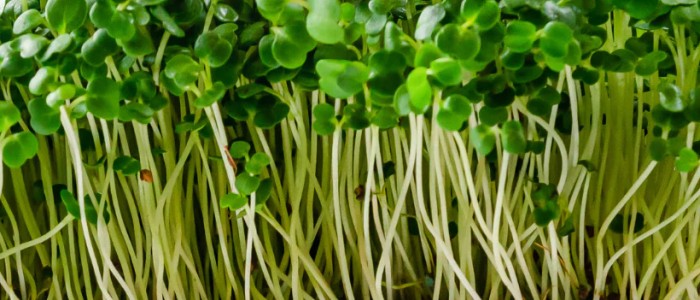-
 Turf Grass Seed Bluegrass, Bentgrass, Ryegrass, Fescues...
Turf Grass Seed Bluegrass, Bentgrass, Ryegrass, Fescues...
-
 Forage Seed Bromes, Clovers, Fescue, Wheatgrass, Legumes
Forage Seed Bromes, Clovers, Fescue, Wheatgrass, Legumes
-
 Grains Wheat Grain, Rye Grain
Grains Wheat Grain, Rye Grain
-
 Cover Crop Seed Buckwheat, Clover, Peas, Ryegrain
Cover Crop Seed Buckwheat, Clover, Peas, Ryegrain
-
 Wildflower Seed Mixtures, Singles, Annual, Perennial
Wildflower Seed Mixtures, Singles, Annual, Perennial
-
 Sprouting Seeds Fully certified Non-GMO Organic seeds for sprouts or microgreens
Sprouting Seeds Fully certified Non-GMO Organic seeds for sprouts or microgreens
Purple Top Turnip Non-GMO Sprouting Seeds
Purple Top Turnip seeds produce a tender, crisp sprout that tastes sort of like a radish. They grow quickly and can be incorportated into salads, soups, garnishes and more. A versatile sprout that’s tasty and very easy to grow.
Seeding Rate:
Indoor: 1oz p/10”x 20” tray
Outdoor: 8-10 lbs. per acre
How to Grow: Wash seeds thoroughly before planting. If grown indoors, germinate in darkness for at least two days (until germinated). Plant in fertile, well-drained soil at a depth of at least 1/8” with temperatures between 50°F to 75°F in full sun (or under grow lights). Keep the soil moist, but avoid overhead watering. Harvest when the seedlings are about 3-4” tall.
Cover Crop: The purple top radish can be grown as a winter cover crop. Every part of this nutritious plant is edible. The leaves can be harvested for greens and the bulb is meaty and crunchy with a radish-like flavor. The roots will break up soil naturally and add nutrients for spring crops. The roots can be stored for some weeks without the leaves if lifted and kept in a cool, dry area. An excellent forage option for livestock and wildlife.
Nutritional Value: Sprouting seeds are richer in protein, folate, magnesium, phosphorus, manganese and vitamins C and K than un-sprouted plants. The vitamin and mineral content varies based on the variety of the sprouting seeds. Sprouts offer a powerful source of vitamins, minerals, antioxidants, and enzymes that fight free radicals because sprouting can increase their potency by 20 times or more.

